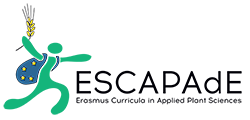English title:
Organic farming in tropical and subtropical regions
Course ID:
933110
ECTS credits:
3,0
Title in native language:
Organic farming in tropical and subtropical regions (in Eng.)
Organic farming in tropical and subtropical regions (in Eng.)
Term Semester:
Spring/Summer
Instruction language(s):
English
Course content:
Topics:
1 Introduction: Principles of organic farming in semiarid, subtropical and tropical environments
2 Farming systems: soil fertility, cropping systems, fertilization, weed control and plant health, animal husbandry
3 Insights into socioeconomic conditions with a close link to organic farming: e.g. farm economy, markets, food security, gender, poverty
The presentations are based on organic farming practices and scientific literature in the following countries: Ethiopia, Kenya, Uganda, Nicaragua, North Afrika (Egypt /SEKEM), Asia (Sri Lanka, India) and Canarian islands
1 Introduction: Principles of organic farming in semiarid, subtropical and tropical environments
2 Farming systems: soil fertility, cropping systems, fertilization, weed control and plant health, animal husbandry
3 Insights into socioeconomic conditions with a close link to organic farming: e.g. farm economy, markets, food security, gender, poverty
The presentations are based on organic farming practices and scientific literature in the following countries: Ethiopia, Kenya, Uganda, Nicaragua, North Afrika (Egypt /SEKEM), Asia (Sri Lanka, India) and Canarian islands
Expected previous knowledge:
basic knowledge in organic farming
Learning outcomes:
Knowing the important concepts of organic farming in in semiarid, subtropical and tropical environments
Becoming capable of assessing latest developments of organic farming in relation to food security, poverty, global markets, a.s.o.
Becoming familiar with important cropping systems and production strategies (fertilisation system, plant protection, weed control, animal husbandry, a.s.o.). Understanding of the wider socio-cultural and economic system in which organic farming is being embedded.
Becoming capable of assessing latest developments of organic farming in relation to food security, poverty, global markets, a.s.o.
Becoming familiar with important cropping systems and production strategies (fertilisation system, plant protection, weed control, animal husbandry, a.s.o.). Understanding of the wider socio-cultural and economic system in which organic farming is being embedded.
Teaching and learning methods:
Presentations and group work (developing an organic smallholder farm) with group and plenary discussions
Exam method:
Seminar work following a template on a specific topic about organic farming in semiarid, subtropical and tropical environments
Organisation: University of Natural Resources and Life Sciences Vienna
Country:
Austria
Acronym:
BOKU
ERASMUS+ code:
A WIEN03
Teaching period summer semester:
22. Feb 2021 - 30. Sep 2021
Teaching period winter semester:
13. Oct 2020 - 21. Feb 2021
University website:
